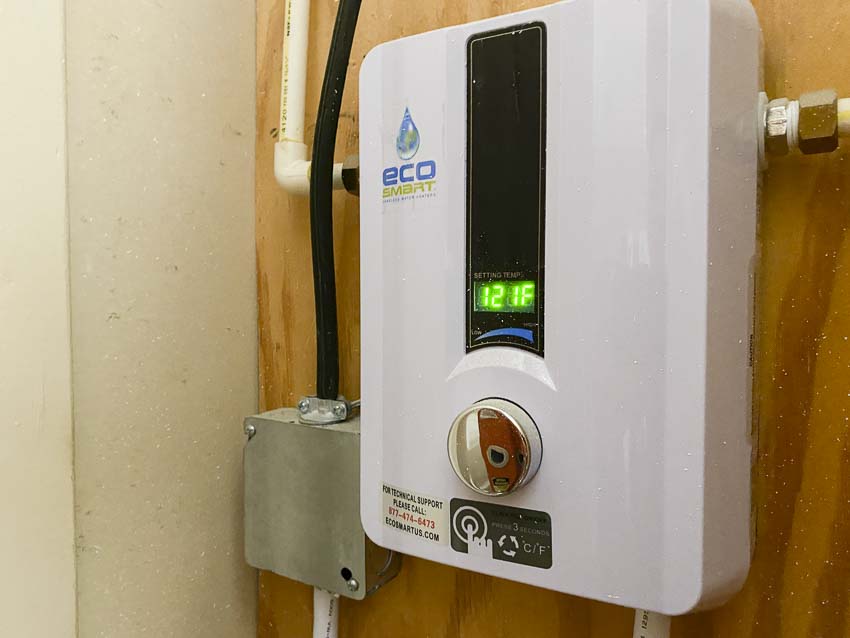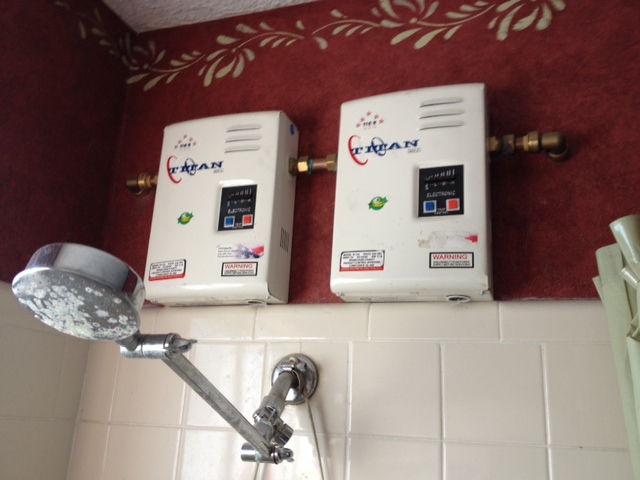Yes, tankless water heaters need electricity to operate. They use electrical components to heat water on demand.
Tankless water heaters have gained popularity for their efficiency and convenience. Unlike traditional heaters, they provide hot water instantly, which can save energy and reduce costs. These systems heat water only when needed, eliminating the need for a storage tank.
They are ideal for homes with limited space and high hot water demands. Understanding their energy requirements is essential for proper installation and functionality. By knowing how much electricity they consume, homeowners can ensure their electrical systems can support these modern appliances. This article explores the electricity needs of tankless water heaters and their benefits, helping you make informed decisions for your home.
Page Contents
Tankless Water Heaters Demystified
Tankless water heaters are modern devices that provide hot water on demand. Unlike traditional heaters, they do not store water. Instead, they heat water directly as it flows through the unit. This saves energy and space.
These heaters use either gas or electricity to operate. Electric models require a power source to function. Gas models may still need electricity for controls and ignition.
Tankless systems offer a constant supply of hot water. They can be installed in various locations in a home. This makes them versatile and efficient.
Powering Tankless Systems
Tankless water heaters provide hot water on demand. They heat water directly without a storage tank. This means they can save energy.
There are two main types: electric and gas tankless heaters. Electric models need electricity to operate. They are easy to install and usually less expensive.
Gas models require a gas line and a venting system. They can heat water faster than electric models. However, they need a constant gas supply.
| Type | Energy Source | Installation Cost |
|---|---|---|
| Electric | Electricity | Lower |
| Gas | Natural Gas | Higher |
The Electricity Myth
The myth that tankless water heaters need electricity started years ago. Many people believe they cannot work without it. This is not entirely true. Most tankless heaters use gas as their primary fuel source. They heat water on demand, so energy is only used when needed.
Some models do need electricity for controls and sensors. This electricity helps the unit work efficiently. However, the main heating process often relies on gas. Thus, homeowners can still enjoy hot water during power outages with the right system.
Understanding this difference clears the confusion. Tankless water heaters can function effectively with minimal electricity requirements. Choosing the right model ensures reliable hot water supply.

Credit: www.protoolreviews.com
Benefits Of Electric Tankless Heaters
Electric tankless heaters offer great energy efficiency. They only heat water when needed, saving energy costs. This means you can enjoy hot water without wasting electricity.
These heaters are compact and require less space. Unlike traditional heaters, they can fit in smaller areas. This is perfect for homes with limited space.
Longevity is a key benefit of electric tankless heaters. They often last longer than traditional models. Regular maintenance is simple, making them easy to care for.
Installation Considerations
Tankless water heaters often require electricity to function properly. They use electric elements to heat water quickly. The amount of electricity needed varies by model. Some units need a dedicated circuit for safe operation.
Choosing between professional installation and DIY can impact the setup. Professionals ensure the installation meets local codes and standards. They bring experience and can handle complex wiring. DIY installation can save money but may lead to mistakes. Understanding electrical requirements is crucial for safety.
Cost Implications
Tankless water heaters require electricity to function properly. The initial investment for these units can be higher than traditional models. Prices vary based on brand and capacity.
While the upfront cost is significant, the long-term savings can be substantial. Tankless heaters typically last longer, reducing replacement costs. They also provide hot water on demand, which helps save energy.
| Cost Factors | Details |
|---|---|
| Initial Cost | Higher than traditional heaters |
| Energy Efficiency | Lower energy bills over time |
| Longevity | Last longer, needing fewer replacements |
Real-world Usage Scenarios
Tankless water heaters are popular in many homes. They provide hot water on demand. This means no waiting for a tank to fill. In residential settings, they can save space and energy. Families enjoy endless hot water for showers and washing dishes.
In commercial applications, tankless water heaters are equally beneficial. Restaurants and hotels often need hot water quickly. These systems can handle high demand without running out. Businesses appreciate lower utility bills and efficient service.

Credit: www.callwaldrop.com
Choosing The Right Model
Choosing the right tankless water heater is important. Assess your household needs before making a decision. Consider the number of bathrooms and appliances that use hot water.
Different models have various power requirements. Some tankless water heaters need electricity, while others can run on gas. Always check the energy source available in your home.
| Brand | Model | Power Source |
|---|---|---|
| Rinnai | RUC98iN | Natural Gas |
| EcoSmart | Eco 27 | Electric |
| Stiebel Eltron | Tempra Plus 24 | Electric |
Check reviews and compare features. Look for models with good energy efficiency ratings. This helps save money on bills.
Common Misconceptions
Many people think that tankless water heaters don’t need electricity. This is not true. Most tankless models do require some electricity to operate. They need power to run the digital displays and safety features.
Another common myth is that tankless heaters provide endless hot water. While they heat water on demand, there is a limit to how much hot water they can produce at once. If multiple taps run at the same time, it may not be enough.
Some believe that these heaters are too expensive to install. While the initial cost is higher, savings on energy bills can offset this expense over time.
| Myth | Fact |
|---|---|
| Do not need electricity | Most models require electricity to function. |
| Endless hot water | There is a limit to the hot water output. |
| Too expensive to install | Long-term savings can balance the initial costs. |

Credit: www.greenbuildingadvisor.com
Conclusion
Tankless water heaters do require electricity to function efficiently. This power is essential for the ignition system and controls. Understanding these needs can help you make informed decisions about installation. Investing in a tankless model can save energy and provide endless hot water, making it a smart choice for many households.
